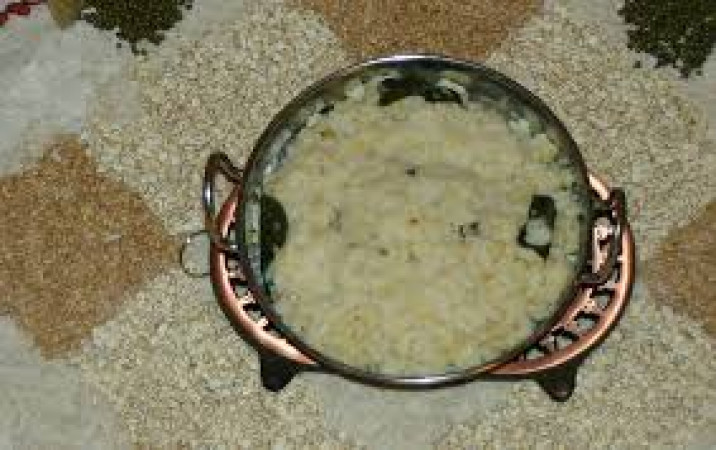
Pongal
Duration
1 to 3 Days
1 to 3 Days
Best time to visit
Jan
Jan
Theme
Religious, Cultural
Religious, Cultural
Pongal Travel Guide
Pongal is a vibrant and culturally rich state located in the southern part of India. Known for its colorful festivals, lush landscapes, and ancient temples, Pongal is a destination that offers a mix of history, tradition, and natural beauty. The state is famous for its mouth-watering cuisine, intricate silk sarees, and traditional dance forms.Top Attractions in Pongal
- Meenakshi Amman Temple
- Mahabalipuram Beach
- Nilgiri Mountain Railway
- Marina Beach
- Tanjore Big Temple
Pongal is Famous for
The state of Pongal is most famous for its elaborate temples, rich cultural heritage, and delicious South Indian cuisine.Top Attractions in Pongal
- Exploring the intricate architecture of Meenakshi Amman Temple
- Relaxing on the sandy shores of Mahabalipuram Beach
- Witnessing the breathtaking views from Nilgiri Mountain Railway
- Strolling along the bustling Marina Beach
- Admiring the grandeur of Tanjore Big Temple
What's Great about Travelling to Pongal?
- Experience the rich cultural heritage of South India
- Indulge in delicious traditional cuisine
- Explore ancient temples and historical sites
What's Not So Great about Travelling to Pongal?
- High temperatures during summer months
- Crowded tourist spots during peak seasons
- Language barrier for non-Tamil speakers
Travel Tips for Pongal
- Observe local customs and traditions when visiting temples
- Carry comfortable clothing and footwear for sightseeing
- Stay hydrated and protect yourself from the sun
Important Pongal trip information
- Ideal Duration: 5-7 days for a comprehensive trip
- Best Time to Visit: November to February for pleasant weather
- Nearby Airports and Railway Stations: Chennai International Airport, Chennai Central Railway Station
FAQ's on Pongal
Q1: What is the best time to visit Pongal?
The best time to visit Pongal is during the Pongal festival, which typically falls in mid-January. This harvest festival is celebrated with great fervor and enthusiasm, showcasing the rich cultural heritage of the region. The weather during this time is pleasant, making it ideal for exploring the outdoors and participating in festive activities.
Q2: Do I need a visa to travel to Pongal?
Travelers to Pongal who hold passports from many countries are eligible for visa-free entry or visa on arrival. However, it is advisable to check the specific visa requirements based on your nationality before traveling to ensure a smooth entry into the country.
Q3: What are the must-visit attractions in Pongal?
Some of the must-visit attractions in Pongal include the ancient temples of Madurai, the serene backwaters of Alleppey, the scenic hill station of Ooty, and the cultural hub of Chennai. Visitors can also explore the historical sites of Hampi, the wildlife sanctuaries of Periyar, and the tranquil beaches of Goa.
Q4: Is Pongal a safe place to travel?
Pongal is generally a safe destination for travelers. However, it is advisable to take usual precautions such as safeguarding your belongings, avoiding isolated areas at night, and being aware of your surroundings. It is also recommended to follow local advice and stay updated on any travel advisories.
Q5: What is the local currency in Pongal and can I use credit cards?
The local currency in Pongal is the Indian Rupee (INR). While credit cards are widely accepted in major establishments such as hotels, restaurants, and shops, it is advisable to carry some cash for smaller vendors and markets. ATMs are also readily available in urban areas for convenient access to cash.
Q6: What is the local cuisine like in Pongal?
Pongal offers a diverse culinary experience with flavorful dishes such as dosa, idli, sambar, biryani, and traditional sweets like payasam. Vegetarian options are widely available, reflecting the local preference for plant-based cuisine. Spices and herbs play a significant role in enhancing the taste of dishes, offering a unique gastronomic experience for visitors.
Q7: What transportation options are available in Pongal?
Transportation options in Pongal include a well-connected network of trains, buses, and domestic flights, making it easy to travel between major cities and regions. Additionally, auto-rickshaws, taxis, and rental cars are available for convenient local transportation. Public buses are a cost-effective way to explore the country, while trains offer a scenic journey through diverse landscapes.
Q8: Are there any cultural norms or etiquette I should be aware of when visiting Pongal?
When visiting Pongal, it is important to respect local customs and traditions. Modest attire is recommended when visiting religious sites, and it is customary to remove shoes before entering temples or homes. Greeting with a traditional 'Namaste' is a sign of respect, and it is polite to accept food or gifts with both hands. Additionally, asking for permission before taking photographs of people is considered respectful in the local culture.
Q9: I am a travel agent. How can I buy travel leads of Pongal?
Register yourself as a travel agent at agents.tripclap.com and then you can buy travel leads to Pongal once your account is approved. For more details contact our support team at +91-8069186564 or support@tripclap.com
